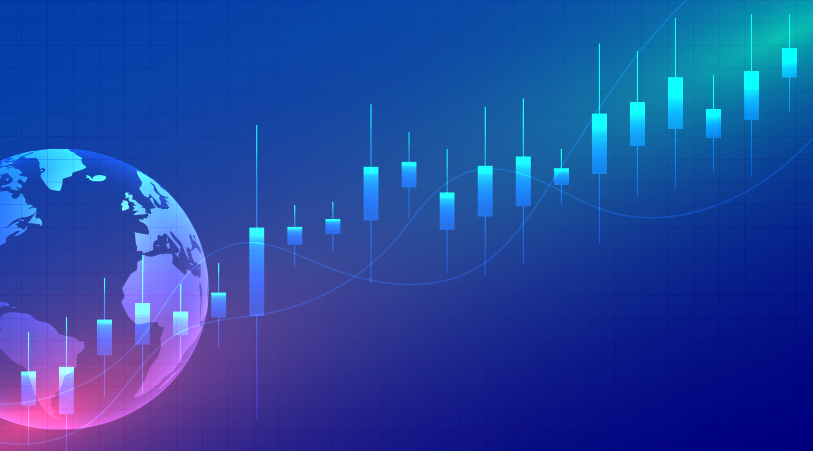Table of Content
- What is Economic Studies?
- Two types of Economic Studies.
- History of World Economics
- Who was the Father of Economics and what were his findings?
- World Economic Revolution
- History of Indian Economics
- Factors that led to Indian Economic Revolution
- A need to rethink Economic Studies.
- Conclusion
The study of economics has evolved over the centuries, and its effect on our world is undeniable. From what we think about how money works , to the ways we assess and balance risks and uncertainty, there is no doubt that economics has shaped our society – In this article, we will uncover what economics studies is, its divisions, when economics as a discipline began, and who is considered as the father of economics and the economic revolution and its repercussions.
What is Economic Studies?
Economic study is the scientific study of decision-making. It explains why people make decisions about how to allocate scarce resources. It is also about understanding how markets work, how prices are determined, and what tools are available for policy-makers to improve the efficiency of markets. It is a social science that deals with understanding the issues of production, distribution, and consumption of goods and services. Economic historians mainly focus on economic changes, reasons behind these changes and why certain nations have more successful economies as compared to those that fall behind. The history of economic studies also enables economists to investigate patterns and root causes that are derived from complex economic, social and political issues in the past.
Two types of Economic Studies
Macroeconomics: Macroeconomics is the study of the performance of an economy on a large scale. It also focuses on how to best use available resources to create desirable outcomes.
Macroeconomics is broken up into 6 main fields: analysis, business cycle, economic fluctuations, economic growth, economic institutions, and general equilibrium.
Microeconomics: Microeconomics is the study of how sellers and buyers interact in a market.
It analyzes how prices are determined in various markets, supply and demand, which factors drive prices, the effect of government regulation, and how changes in one part of an economy can affect other parts.
History of World Economics
The first economic study traces back to the Ancient Greeks, who viewed how population size influenced economic growth.
Early Economics started during the Bronze Age (4000-2500 BCE) and influenced many parts of the world. There were written texts from four major areas like Sumer and Babylonia; Indus River Valley Civilization; along the Yangtze River in China; and Nile Valley in Egypt that date back to 3500 BCE.
There were accounting systems in written language, later on it progressed to recording debts and interest payments and other scribes that had recorded the collection and redistribution of goods and property.
Economic frameworks mainly began in the late 18th century. At this point, economics studies focused solely on production, distribution and consumption.
Hammurabi, the ruler of Babylon, created the code of Hammurabi (1810-1750 BCE) which is considered as one of the earliest works of economic synthesis. It was created to provide a detailed framework of commerce that included important aspects like business ethics specifically made for merchants and tradespeople.
Who was the father of Economics and what were his findings?
Adam Smith was a Scottish philosopher and economist who is popularly known as the father of economics. He was the pioneer behind the concept of classical free market theory.
The first economic study was done by Adam Smith in 1776 with his book “An Inquiry into the Nature and Causes of the Wealth of Nations”. This was one of the first books to introduce economics to the world. It included how to measure objects, trade, and money among many other topics that are still studied today. Smith and a few other economic thinkers like David Hume and Alfred Marshall gave birth to economics around the time of the Industrial Revolution.
Smith argued that individuals have a natural tendency to promote their own interests in a free market economy in coordination with others in a social environment. He believed that this would lead to an equilibrium in which everyone’s economic decisions benefit themselves. He developed the concept of division of labour and stressed upon the fact that rational self-interest and competition could lead to economic prosperity.
World Economic Revolution

The economic revolution was a time of incredible change in the Western world at the start of the 19th century.
The Industrial Revolution began to reshape how people lived. Factories popped up all over Europe and America, which required workers.
People moved to cities, often far from home, to find jobs. They were attracted by better wages that factories offered for often tedious work. During this time, many people believed that workers deserved better working conditions and fair wages.
This led to improved conditions of the working class as working men and women led labor strikes to demand safer working conditions and higher pay, which invariably led to advancements in transportation, basic infrastructure, urbanization, and better economy.
History of Indian Economic Studies
The history of economics in India goes back to the medieval era when there was anecdotal evidence of activities that resemble economic activity.
Indian economics can be classified under Western economic theory but with an emphasis on social welfare and poverty alleviation
Chanakya (350 BC-275 BC), an ancient philosopher, economist , professor and royal adviser was known to have considered economic issues who later authored the political treatise, the Arthashastra. Many of the topics discussed in this ancient texts are still prevalent in Modern Economics.
However, it was not until the 1800s when the first official documents containing economic principles were published by Indian writers.
There are many economists who developed their theories based on India’s specific climate and needs. The most well-known include Amiya Kumar Bagchi, P C Mahalanobis, Prasanta Chandra Mahalanobis, Jagdish Saran Sharma, Ashok Rudra, and Raj Krishna.
Factors that led to Indian Economic Revolution

The revolution of Indian economics is known to have come from Amartya Sen. The original study of macroeconomics was done by Sen. He was also awarded the nobel prize in 1998 in Economic Sciences.
He studied how economic disequilibrium affects the growth of the economy. Sen became one of India’s most celebrated economists because he focused on problems that came up due to globalization and modernization in India.
On the contrary, Indian economics post independence was also influenced by European colonialists, which shaped the intellectual tradition of the subcontinent until 1990.
The new economic policy in 1991 and the advent of the IMF (International Monetary Fund) and World Bank compelled India to liberalize its economy and remove trade barriers with other countries. Some of these economic policies led to structural reforms and stabilization measures. There were reforms like privatization, liberalization and globalization which led to improvement in the economy and also increased its international competitiveness.
- The history of economics is very broad and expansive. It is difficult to pinpoint one specific factor that led to the development of this field in different countries.
- But it is known that the world economic growth saw a steep growth after World War II and is recorded to have tripled the worldwide GDP since 1940.
- The economic growth also witnessed a new orientation after the advent of the Internet in the last 3 decades where the Worldwide GDP was recorded to double in number.
A need to rethink Economic Studies.
In spite of the revolution that economics has witnessed in the last many decades there is still an increased need to rethink what economic studies is and what economic growth really means in the current century.
Economics is not just about profit and numbers anymore. Sustainability, equal opportunity and a society that is fair to all is what should be the driving factors of the new economy.
There are a number of academic institutions who now focus on economics with an interdisciplinary approach. In order to foster an inclusive framework, universities use this approach that enables them to impart knowledge from different disciplines within an economic framework
This enables students to make co-relations between societal challenges and influencing factors to gain a broader knowledge that help them drive to effective solutions.
When we make changes at the grassroot level, we are prepared in the coming generations to tackle unpredictable world situations and geographical impacts that may affect the lives of our people and the economy of our country.
Conclusion
With the increase in globalization, our economy has become more interconnected with other economies. This creates a need to rethink and study new economic models that can be used to better understand both national and global economies. In order to do that, we have to create new leaders and thinkers who will help us determine the best way to maximize economic growth potential while minimizing social inequality.
Learn more about Interdisciplinary Undergraduate and Postgraduate Programmes in Economics
Also read, “Economic Studies: Rethinking the Fundamentals: Part 2” to gain more insights on what is missing in economic studies and what are the steps that need to be taken to create better economic outcomes.

 Academics
Academics Admissions
Admissions Faculty
Faculty Enquire
Enquire